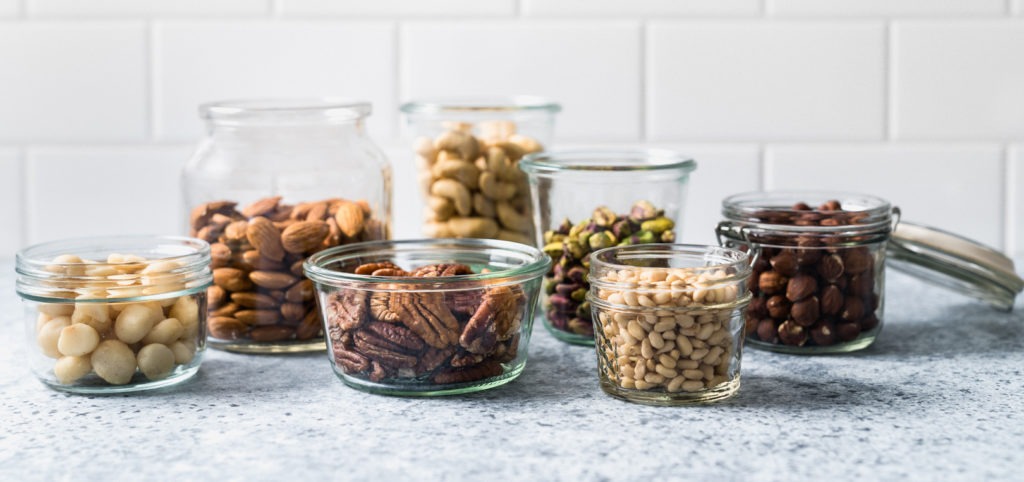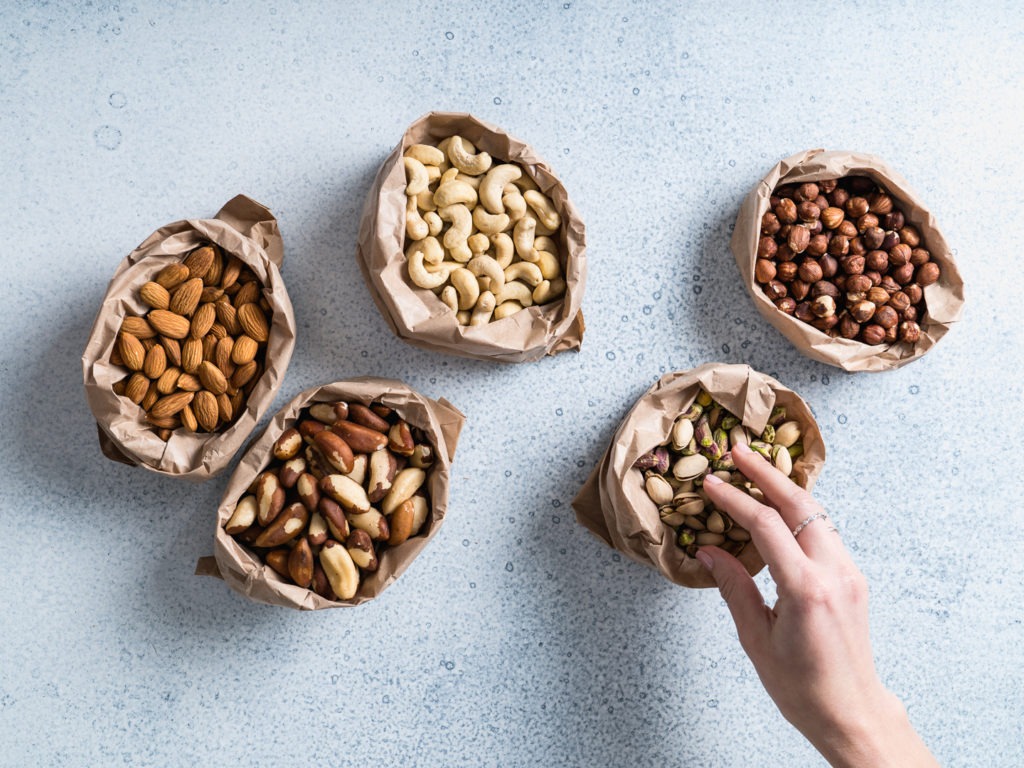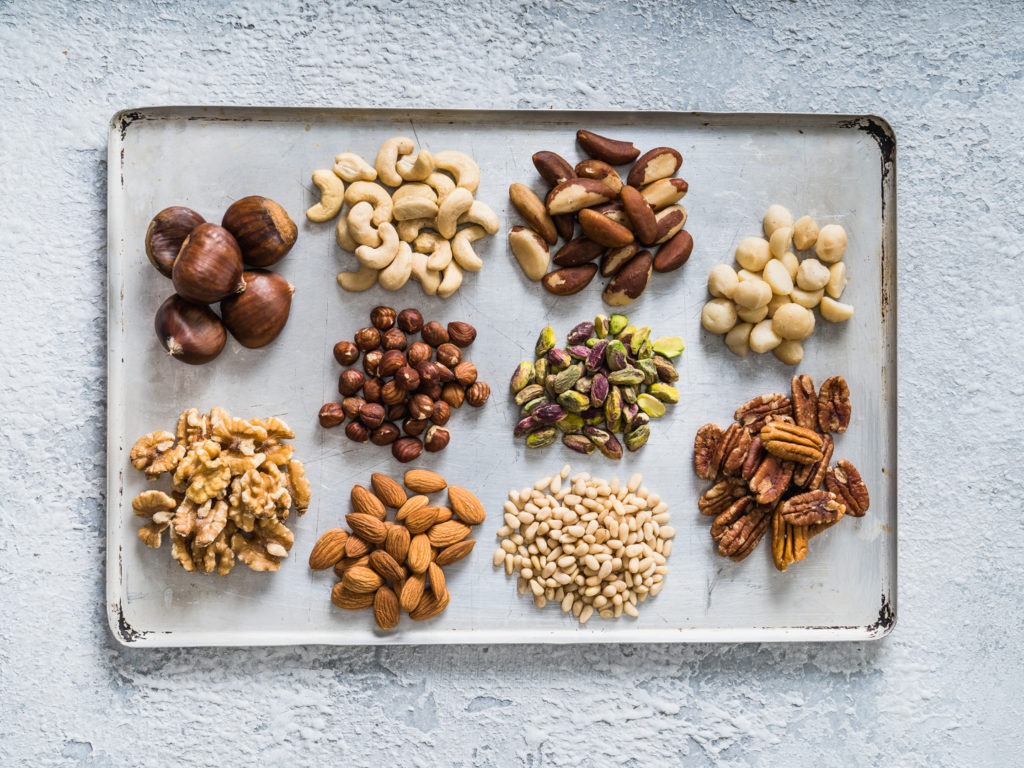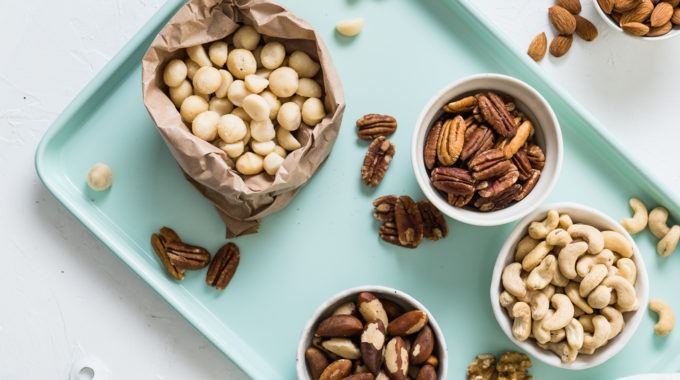Nuts make you fat… and other myths
Fact: nuts are delicious. And they’re actually really good for you. So why aren’t we eating more of them? A study from the University of Wollongong found that only a tiny two percent of Australians are eating the recommended 30g of nuts a day.
Avoiding nuts means you’re missing out on some pretty important nutrients. The researchers found that regular nut-eaters had significantly higher intakes of fibre, vitamin E, iron, magnesium and phosphorous. And despite the fact that many people say no to nuts because they think they’re fattening, the study revealed that nut consumption was not associated with increased weight, body mass index or waist circumference.
To help bust some nut myths that just won’t go away, EATIVITY called on the expertise of dietitians across the country, who shared the most common nutty questions they get asked.

Won’t eating nuts make me fat?
Myth busted! There are 20 years of scientific research to show nuts don’t lead to weight gain. In fact, regularly eating nuts can actually help keep your weight in check.
The big fat myth first came about because nuts are high in fats and therefore calories. It’s true that nuts are a rich source of monounsaturated and polyunsaturated fats. However, these fats are healthy fats and are actually good for managing your weight. Combined with the protein and fibre found in nuts, these fats can help to switch on satiety hormones in your gut, which keep you feeling fuller for longer and help to control your appetite.
Should I stick with raw nuts?
Raw nuts are obviously a healthier choice than salted nuts, as well as chocolate- or toffee-coated nuts. But what about raw vs. roasted? The good news is both are healthy options. Several large studies have shown both roasted and raw nuts have associated heart health benefits, helping to reduce the risk of heart disease and lower “bad” LDL cholesterol levels.

Are “activated” almonds better for you?
Activated nuts are soaked in water, usually overnight. The theory is that this helps to make the nutrients more digestible. Fans of activated nut varietiess believe the soaking helps to break down phytates – a plant seed compound that binds to minerals and makes it difficult for the body to absorb minerals such as iron, calcium and zinc. However, very little research has been done to show what effect, if any, soaking has.
It’s also important to know that phytates are not all bad – they have their own health benefits. Phytates have antioxidant and anti-inflammatory effects, appear to have anti-cancerous properties and may help carbohydrate metabolism and glucose control.

Should I limit how many I eat?
Some people think you should only have a small number of nuts at any one time. This all comes back to worrying about weight gain. Just remember nuts are not associated with weight gain, so there’s no need to count how many you snack on, especially as the vast majority of us are already not eating enough.
If you’re wondering what a recommended daily serve of nuts looks like, it’s 30 grams or around a handful. For almonds, this equates to about 20. We should all be aiming for a handful each day. If we were to break this down, it would be equivalent to:
20 almonds
10 Brazil nuts
15 cashews
20 hazelnuts
15 macadamias
15 pecans
2 tablespoons pine nuts
30 pistachio kernels
10 whole walnuts
1 small handful of mixed nuts (about two of each type)
There’s also no reason why we can’t eat more than one handful a day, as research shows that around two handfuls each day can assist with lowering cholesterol levels. Instead of counting out your nuts, simply enjoy at least a handful a day. Try to mix it up, so you’re eating a variety and getting the different nutrients each type provides.
For more nutrition information and recipe ideas, head to nutsforlife.com.au









